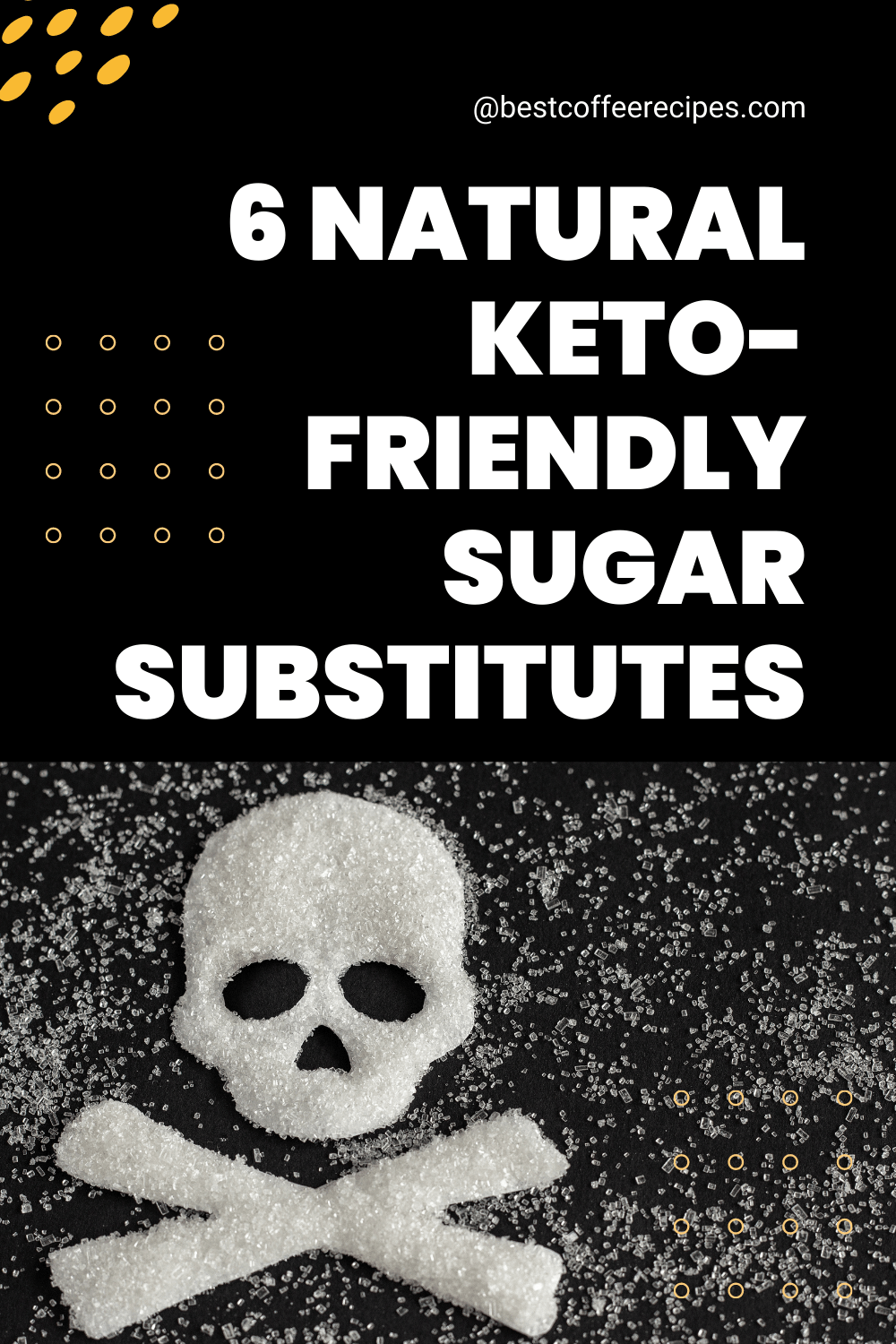In the world of food sweeteners, not everything is created equal. Whether you’re looking to save a few calories or are cutting back for other health reasons, finding the perfect keto-friendly sweetener can be a tall order. Here is an overview of 6 keto-friendly sugar substitutes to help you choose the best sweetener for your keto lifestyle — coffee style.
1. Monk Fruit Sweetener
Monk fruit sweetener is a perennial vine native to the southern regions of China and northern Thailand. The vine is cultivated exclusively for its sweet extract, 150 times sweeter than sugar. Monk fruit extract is a zero-calorie, zero-carb, all-natural sweetener with health benefits beyond adding sweet taste to foods. Research is ongoing, but preliminary evidence strongly suggests the antioxidant and anti-inflammatory properties found in monk fruit extract can inhibit the activity of free radicals that damage our DNA.
Monk Fruit In Coffee
Monk fruit is a perfect sugar substitute, and you can add it to just about anything. Adding monk fruit sweetener to your daily cup of coffee will make your coffee a “super coffee.” Give it a try!
2. Stevia Sweetener
Stevia sweetener is a natural sweetener derived from the leaves of the stevia plant and sold in powder and liquid forms, and is almost 300 times sweeter than sugar. Stevia’s intense sweetness makes it an ideal companion for coffee, tea, and other beverages. Keto-friendly baking with stevia can be tricky. Since the extract is several hundred times sweeter than sugar, determining the correct amount of stevia for the desired flavor of a dish may require some trial and error to perfect.
Determining the correct liquid-to-solid ratio when using stevia as a stand-in for sugar in conventional recipes requires precise calculation. In addition to flavor, sugar adds bulk to recipes, which helps obtain an appealing texture.
Stevia Sweetener In Coffee
Simple add Stevia sweetener to your tea and coffee in its raw form and remove the leaves when you’re ready to drink. Top brands of Stevia include Pure Via, Truvia, and SweetLeaf.
3. Allulose Sweetener
Allulose is a naturally derived monosaccharide (simple sugar) found in plants like figs, raisins, and even wheat and has a minimal effect on blood sugar levels. Technically, allulose is a type of sugar, but it doesn’t behave like sugar inside the body. Allulose doesn’t promote the same destructive digestive bacteria in the mouth as table sugar.
Allulose has about 70% of table sugar’s sweetness with 10% of the calories. Using allulose as a sugar replacement in conventional recipes is less complex than other sweeteners as it measures 1:1 with granulated sugar in most recipes. The sugar causes the attractive brown color on the top of most baked goods in the recipe as it bakes with the other recipe ingredients. Most artificial sweeteners struggle in mimicking this effect, but allulose creates a brown similar to that of table sugar.
Allulose In Coffee
Allulose dissolves easily, making it perfect for coffee and tea. A tablespoon per 12 oz. should do it!
4. Yacon Syrup
The Andes mountains in Peru are home to the yacon plant, which produces the sweetening agent known as yacon syrup. The syrup is made by reducing the juice of the yacon root until it becomes a thick liquid similar to molasses. Yacon syrup contains indigestible ingredients that keep it low in calories and carbs and high in gut-friendly prebiotic fiber. However, not all of the sugars in yacon syrup are indigestible, and the syrup does not agree with everyone’s digestive system.
Yacon Syrup In Coffee
Yacon Syrup can also be used as a sweetener in coffee, tea, and smoothies.
5. Inulin Powder
While most people are familiar with insulin, inulin is not as well known. Also known as chicory root, Inulin is a prebiotic fiber that calms sugar cravings without added sugar or carbs. Inulin also slows down digestion, allowing the body to extract more nutrients from food.
Inulin can be added to nearly any baked good, but it should be added to the diet gradually to ensure it does not cause digestive upset. Some people report that inulin can cause upset stomach or bloating when consumed too quickly.
Inulin In Coffee
Inulin powder can be added to coffee and will most likely make you feel full. Speak to your healthcare professional before adding Inulin to your daily cup of joe.
6. Hershey’s Cocoa Powder
Could anything go better together than coffee and chocolate? Try adding a scoop of unsweetened cocoa powder to your coffee grounds and mixing well before you brew. You could also mix a bit of cocoa powder and sugar in your individual cup and then add your hot coffee on top and whisk to dissolve the cocoa-powder-and-sugar mixture.
Keto-Friendly Sugar Substitutes Summary
Adopting a keto-friendly diet does not mean giving up the foods you love. Starbucks and Dunkin both have great Keto options to help your diet plan. When at home, make it a priority to try out a monk fruit sweetener or two other sweeteners from this list; you’ll be glad you did!
Remember, this site and its contents are for informational purposes only. Please consult professionals when making health decisions or introducing new sweeteners into your diet. Best Coffee Recipes is not responsible for health issues related to our blog posts.



Leave a Reply